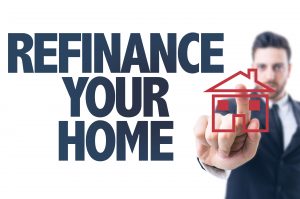Our Services
- First Home Buyers
- Refinancing
- Debt Consolidation
- Investment Property Loan
- Construction Loans
- Personal Loans and Car Loans
- Financial Planning
First Home Buyers
At Good Life Finance, we can provide you with the support you will need throughout the whole home loan process. Our support and guidance include but is not limited to: (i) explaining to you everything that you need to be aware about the First Home Owners Grant (FHOG) (ii) Communicating with land agents and builders regarding finance extension etc.
We will also liaise with the lender, your conveyancer and your real estate agent on your behalf. As we do the hard work for you, you can have more time to focus on finding the right home for you and your family. We’ll be there every step of the way to guide you through the entire home loan process – from application to approval.
In addition to the above, we will also go through the following items systematically:
- How much you can borrow.
- How much will you need as deposit.
- How much will your regular payments be.
- What will be the frequency of your regular repayments.
- The various fees and costs that you will need to budget for.
Refinancing
At Good Life Finance, we can assist you with reviewing your existing home loan and advise whether refinancing is the best solution for you.
Below are some of the basic things that you’ll need to know about ‘Refinancing’.
What is refinancing?
Refinancing is the act of switching home loans. This can be by moving your loan to a new lender, or just by changing the type of home loan you have with your existing lender.
Usually, refinancing is done to get a lower rate or a loan suitable for pursuits such as renovations.
More often it’s done by switching to a new lender that may offer an interest rate or features that better suit your situation.
Why should I consider refinancing my home loan?
- For a better interest rate
- To access and use equity
- To get new features
- To pay less in fees
- To get a loan that better suits your life
- To take advantage of a cashback
- To consolidate debts
- To get better customer service
What are the disadvantages of refinancing?
- You’ll have to pay a discharge fee to get out of your old loan.
- You’ll usually have to pay upfront, annual or monthly fees for your new loan.
- You might have to pay expensive break fees when you leave a fixed rate home loan.
Debt Consolidation
Does getting out of debt seem like an impossible task? Are you dealing with too many creditors? If these problems face you, there are solutions. For example there is a way in which you can pay a single bill each month, with a fixed sum and interest rate. This sum never changes and is due on the same date every month. This means that you know what your exact liability is with no surprises. This can be done with debt consolidation.
Debt consolidation is the process of taking all your debts (credit card balances, overdrafts, store cards and so on) and consolidating it into one, low-interest, loan that gives you one easy, manageable payment to meet monthly. The purpose of a debt consolidation loan is to pay out your existing debts. Here are some reasons why you might consider debt consolidation if you are in trouble with debt:
- It is a manageable solution for people who are bad with money
- It is a low interest form of debt
- It eliminates the potential to accumulate more debt
Investment Property Loan
Buying an investment property is a great way to build your wealth, but also represents a big financial commitment. That’s where we come in, with a range of investment home loan options to suit your purchasing needs.
What are the steps involved in buying an investment property?
The steps to buying an investment property are essentially the same as the buying process for your own home. Variations occur at the contract stage where you’ll need to purchase investment home insurance, instead of home insurance, and at settlement, when tenants will move in instead of you.
Buying an investment property can be an excellent way to create wealth. But, like any investment, doing your research before you take the plunge could save you thousands.
You need the right loan to maximise your investment returns. These six steps will prepare you buy an investment property with confidence.
Step 1: Find out how much you can borrow
Your borrowing power will give you a good idea of how much you can borrow to purchase a property and will help you narrow down the properties you’re interested in.
Your borrowing power will vary between banks and lenders because they use different methods to assess your capacity and have different lending criteria.
As a guideline, when determining how much you can borrow banks and lenders will look at:
- Credit card limits
- Income and types of income (whether you are a casual, contract or full-time employee)
- The size of the loan compared to the property value
- Number of dependents and their situation
- Type of loan
- General living expenses
- Existing asset position (including the size of your deposit)
Step 2: Calculate your loan and purchase costs
In addition to your deposit, you will need to consider these purchasing costs:
- Loan application fee
- Valuation fees
- Stamp duty and other statutory government charges
- Conveyancing and legal fees
- Lenders Mortgage Insurance (LMI) if you’re borrowing more than 80% of the property value.
Step 3: Look at your investment loan options
There are a range of property investment loans available to suit just about any investment strategy. Property investment loans aren’t too different from other home loans. You’ll need to compare rates, features, fees and charges.
Step 4: Get pre-approved
A formal pre-approval works the same way as a formal loan application, except without the security details. With a formal pre-approval, your lender assesses your income, expenditure, assets and liabilities to work out how much you can borrow.
At GOOD LIFE FINANCE we can arrange you a formal pre-approval! PLEASE CONTACT US ON 0431240731
Step 5: Find your property
When choosing your investment property it’s a good idea to consider:
- Location: is the property in a well-tenanted area or likely to experience property price growth?
- Demographics: is the property suitable for the type of tenants in the area, e.g. low-maintenance apartments for young professionals?
- Infrastructure: is there appropriate infrastructure in place, such as transport, shops, cafes and schools?
- Development: is there any development planned for the area that may improve existing infrastructure, leading to possible improvements in tenancy rates or price growth?
Before you enter into negotiations for a specific property, find out:
- Has it been rented before?
- How much rent was paid?
- Were any vacancy periods?
- How long it was vacant for, and why?
Step 6: Buying your Investment Property
Once you have put an offer on a property, please contact our Mortgage Broker at Good Life Finance so that we can finalise your Investment loan. If you have a loan pre-approval, formal loan approval may take only a few days to finalise. You will then be issued with a formal approval letter.
Construction Loans
For construction loans, payments are normally effected as the project progresses through the following stages:
- Slabs
- Roofs
- Lock-up
- Completion
To apply for a construction loan, you will need the following, in addition to the standard financial information required for any bank loan:
- Fully signed Fixed Price building contract.
- Original council approved plans and specifications (To be provided to the valuer)
- Quotes for any out of contract items (wherever applicable).
- Contract for the sale of land (purchase of land).
In today’s financial market, the maximum amount that can be extended for new dwelling is approximately 95% of the total construction cost.
Considerable savings can be made on stamp duty when constructing a new home loan compared with purchasing and existing home since stamp duty will only be paid on the land not on the construction of your new home.
Person Loans and Car Loans
If you are looking to apply for a Personal or Car Loan, we can look at a range of solutions dependent on your needs and personal circumstances. Personal/Car loans can be either secured (where the loan is secured against an asset) or unsecured (where the bank is relying solely on your income flow) and can be fixed or variable rate.
Financial Planning
At Good Life Finance we also try to ensure that you, your family and your assets are adequately protected and covered in case something happens.
We have formal relationship with experienced Financial Advisers who can provide you with advice in the areas of Personal Insurances, Superannuation (including Self-Managed Superannuation), Investment Planning and Retirement Planning.
Our Financial Planning Referral Partner will explain to you the tax and costs implications of having personal insurances inside your superannuation. They can help you put in place a strategy to better plan your retirement and create wealth through self-managed super fund. They can also show you how you can preserve your wealth by putting in place a Will or a Power of Attorney, taking into account the tax implications as well.





